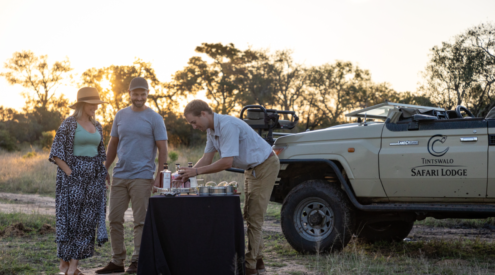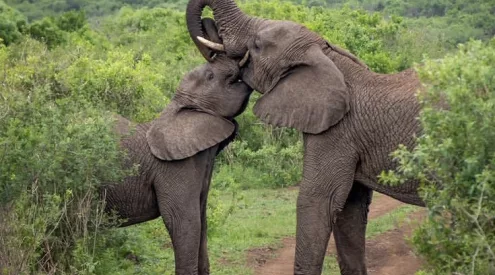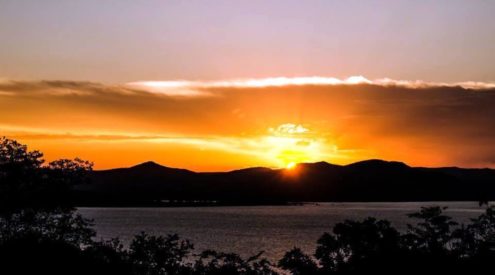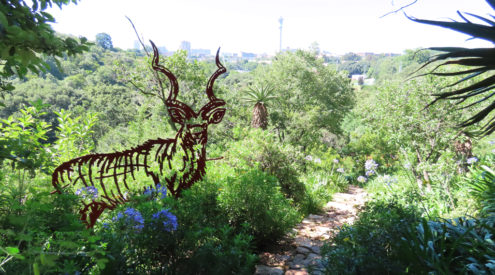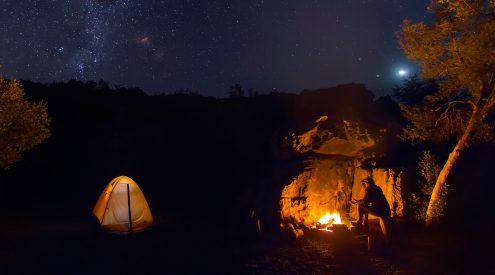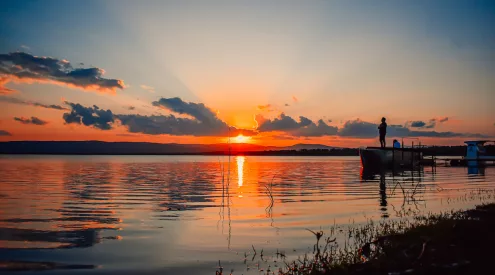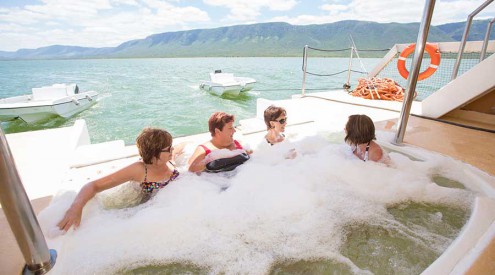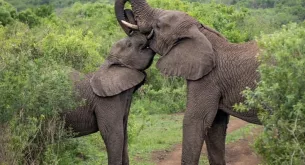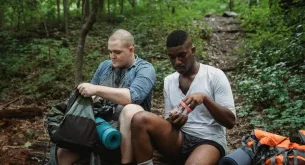Falling into a routine need not be a bad thing. A routine becomes a rut if you’re not enjoying yourself, but one of the secrets to enjoying travel, I think, is getting into a certain groove.
I’m all for adventure (although I stand by my definition of an adventure – last year’s nightmare), but it can be just as fun and rewarding when basically nothing is going on.
It’s easy to do nothing on a beach holiday, but it’s not the kind of thing one associates with spending time in the bush – unless you can find the right place at the right time.
Mrs Blog and I found the right place, Shimuwini Bushveld Camp in the Kruger Park, at the right time – over the Christmas-New Year holiday period.
We’ve had a few Christmases in Kruger and while it can be great fun camping during the festive it’s also pretty crazy. We’ve also learned the hard way that it’s not the best time of year to be on the road game viewing – there are simply too many other people around.
This year, for a change, we decided to opt out of the annual camp ground chaos and hole up in Shimuwini. I love the Kruger’s bush camps because they tend to be quiet, remote and scenic and Shimuwini, as we rediscovered after many years’ absence, would have to be the quietest, remotest and most scenic in the park.
Shimuwini is set at the end of a corrugated 11 kilometres of gravel road, off the tar road between Phalaborwa Gate and Mopani (which in itself is quiet for a ‘main’ road in Kruger, thanks to the thick mopani that flanks it, making spotting anything other than elephant hard work).
Rebuilt after the big floods of 2000, Shimuwini’s 15 lodges still have an air of newness about them and they’re kept in spotless condition by the camp’s small team of cleaning staff.
The accommodation is strung out along the Letaba River and every lodge has a superb view of the water, which is about 50 metres away on the other side of a grassy lawn and low fence.
There’s no mains electricity, but a generator provides power direct to the communal deep-freezes and the camp office, where guests can charge cameras, phones and laptops (if, like me, you’re silly enough to take a laptop to the bush). In the lodges themselves there’s enough power to run a super-efficient fridge, fans and dim but adequate lights in each room.
There’s no shop, no camp ground, no filling station and, apart from the distant hum of the generator during the day (it’s turned off at night), no noise.
It’s not quite paraffin lanterns and wood-fired stoves (in fact, far from it as the gas-powered oven and geyser work a treat), but there’s a feeling of being just that little bit rustically removed from civilisation.
We decided to forgo our normal early morning game drives for the first couple of days, to catch up on some sleep and make the most of being in a house instead of in our roof tent, but I think we both thought we’d be out hunting big game with our Canons (cameras that is), pretty soon after.
Wrong.
We got our fix of game and bird spotting every morning and evening, without leaving the veranda. The stretch of river in front of the camp, studded with pinkish granite boulders that channelled the flow into a series of mini rapids, turned out to be as popular with animals as it did the camp’s human inhabitants.
During our time there we had regular evening visits from a one-tusked elephant and a herd that muscled in on his turf (to his annoyance) every few days. There were also resident herds of impala, kudu and waterbuck, and a trio of contentedly grumpy old man buffalos.
Judging by the number of guests with big binoculars and craned necks, Shimuwini is also a regular haunt of a bird spotters. Even novices like us couldn’t help but be impressed by the constant comings and goings of giant, pied and woodland kingfishers, herons, crakes and a pair of cute-as-a-button barred owls who lived in the trees next to our lodge.
Late one afternoon, the eagle-eyed Mrs Blog spotted a lioness, lying camouflaged beneath a red terminalia bush (apologies, tree lovers, if I’ve got that wrong) on the far side of the river. When the solitary cat strode out into a small clearing, and confirmed her presence to the other guests who had joined us on the fence, Mrs B earned the game-viewing equivalent of a standing ovation – a hearty “well spotted” from the birders.
The routine we lapsed into was decadently lazy and perfectly simple. Wake (early-ish, but nowhere near 4 am); check for visitors at the river; back to sleep; wake; eat; drink; watch the hippos head off to work over sundowners; eat some more; and sleep.
It took us three days to even venture further than our lodge, on a stroll around the camp. When we did, we were rewarded with the discovery of a brand new plunge pool and shaded boma area. Livingstone couldn’t have been more surprised and elated when he discovered Victoria Falls.
If we’d had more time at Shimuwini then my simple routine of readin’, writing’ and restin’ could have turned into a rut, but even if it did, I was pretty sure I’d be happy to stay in the groove forever.


